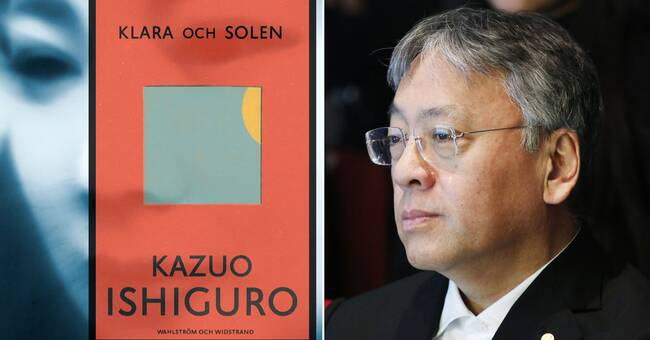Klara, the narrator in Ishiguro's new novel, is an AV, an artificial friend waiting in a store to be selected by a human.
So Klara and the Sun is a science fiction novel, a scientific fantasy?
No, as always with Ishiguro, it is a story about people trying to understand their feelings and the choices they have made.
That Klara is an artifact, programmed to be empathetic and faithful, does not make her less human, but a unique individual with her own way of perceiving the world.
It starts already
when Klara is moved forward in the shop window and gets to see the world in all its richness of detail, albeit from a limited perspective: She looks in square fields and interprets the signals she perceives, sees people embrace each other, sees others who walk many steps in front of someone does not seem to like.
She begins to recognize what sadness and joy are and puts her feelings into words.
Then she is chosen by a customer to become friends with a sick girl and is faced with a new life.
The novel takes place in a country, perhaps the United States, where some parents genetically manipulate their children so that they are "raised" while others remain "unheeded".
In other words, it is about a future that is already here, at least as a possible development of AI and genetic engineering, but it is also possible to read the novel as a story about a society where those who can afford it can buy success and servants, artificial or not, bearing the burdens of the privileged.
So read, this novel is similar to both Ishiguro's breakthrough, “The Remnant of the Day” (1989) which takes place among just lords and servants, and “Never let me go” (2005) about young people growing up in a home where they are unknowingly prepared for to donate their organs.
The distance between Klar
a and the people she ends up with is not least visible in the language.
Klara is careful to choose the words correctly, so that they fit what she sees, as if everyone is looking and pressing their "ovals".
She addresses everyone excessively respectfully in the third person with a first name, while she herself is addressed with "you", insofar as she is not contemptuously called a robot by any "height".
Ishiguro's prose is simple but never innocent, his characters are as they speak and Niclas Hval's translation takes good care of all the small shifts in the language that create individualized characters.
"Clear and the Sun" is, like almost all of Ishiguro's novels, a self-narrative, it is she who has the word and with whom the reader identifies.
Robot?
No, a real person:
We are hurt when she is
treated badly and warmed by her growing love for those close to her.
We see Klara's loneliness but also that she can live with it.
This story feels like a youth novel, it is permeated by a strong desire to give hope, but it never gets sentimental, it is a warming book for our cold time.

